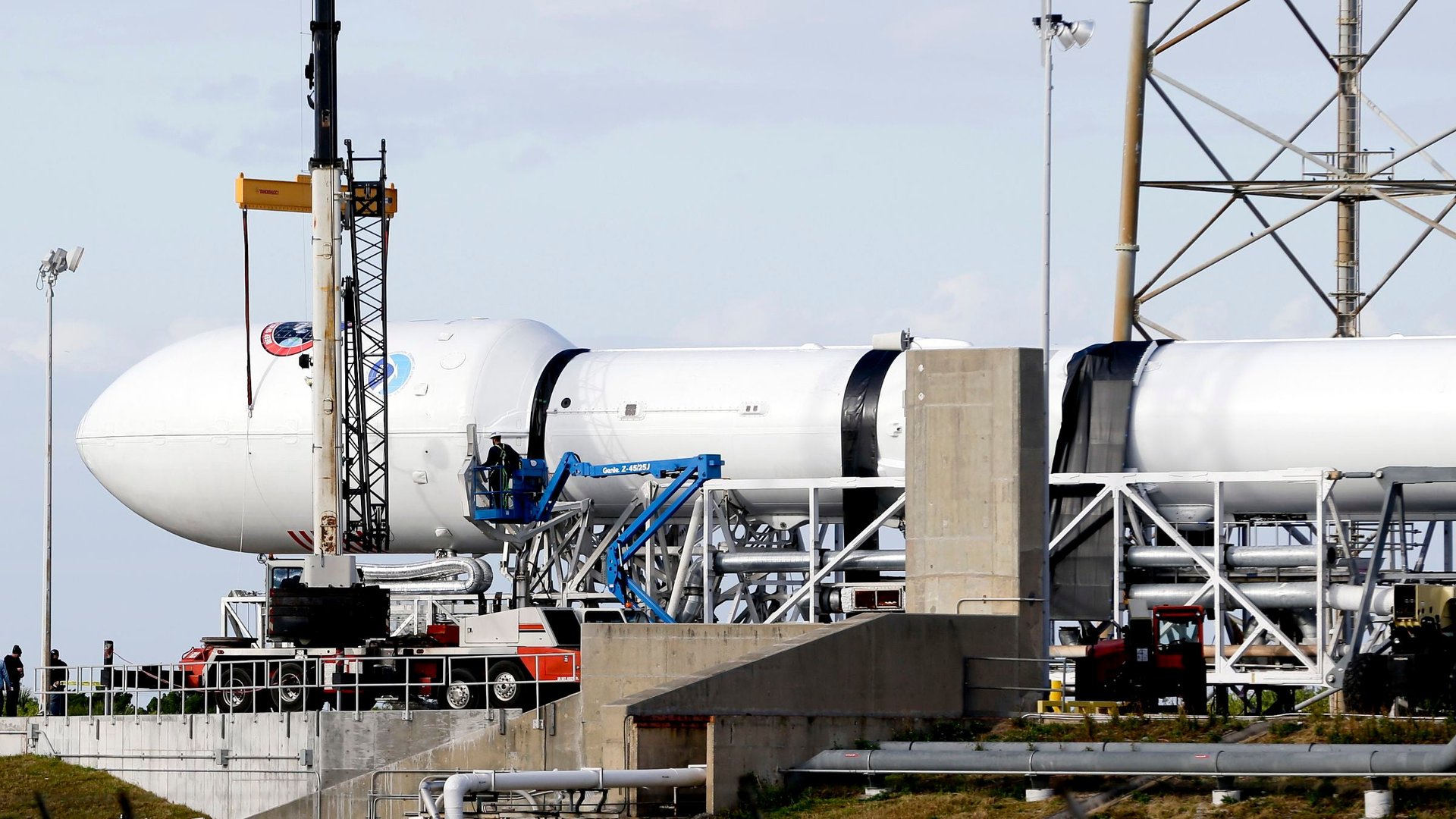A competitor is trying to force SpaceX to reveal its secret satellite internet plans
Intelsat has asked US telecom regulators to reveal confidential parts of SpaceX’s application to fly experimental internet satellites, citing fears of orbital gridlock.


Intelsat has asked US telecom regulators to reveal confidential parts of SpaceX’s application to fly experimental internet satellites, citing fears of orbital gridlock.
In the objection, Intelsat, a European firm that operates a major global satellite network, says it doesn’t understand ”how the proposed [SpaceX satellites] could operate on a non-interference basis or meet the requirement to avoid collision with other satellites.” The company also filed a Freedom of Information Act request to reveal the confidential information, which includes technical details on SpaceX’s antennae, ground stations and “power flux density.”
SpaceX, which is making its first foray into satellite broadcast after becoming an important player in the launch business, says its filings should remain confidential, lest they provide an unfair advantage to competitors. The company’s response to the objection says the original filings already provide sufficient information for collision avoidance, and promises to release further details on transmission interference.
“Intelsat has long been a vocal proponent of satellite operators sharing information with one another to avoid or mitigate any potential interference issues that could disrupt connectivity,” an Intelstat spokesperson said in a statement. “It is helpful that SpaceX has provided additional technical information. We are continuing to review their submission to determine if it is adequate for us to complete a thorough analysis of the potential impact.”
SpaceX did not respond to a request for comment, but the company’s filing offered a potential ulterior motive in Intelsat’s objection: “Here it should be noted that Intelsat has invested in and entered into a ‘strategic alliance’ with OneWeb, an announced competitor to SpaceX’s NGSO system.”
Which is to say, it thinks Intelsat is playing a role in the rivalry at the heart of the renewed interest in satellite internet: telecom entrepreneur Greg Wyler’s OneWeb versus Elon Musk’s SpaceX. The two nearly collaborated before launching competing efforts to use hundreds of micro-satellites to solve the problems of orbital internet access.
The current fault line is centered on conflicting US and international rules about satellite transmissions. While Wyler’s OneWeb has international rights to the high-frequency spectrum preferred for space internet, SpaceX has moved to secure priority at the FCC. And both want to be the first to build, launch and deploy a working satellite constellation to establish the facts in the sky, so to speak.
SpaceX’s end-run around Wyler’s international permits has rubbed some in the satellite business the wrong way, especially as OneWeb has established partnerships with numerous incumbent players, including Intelsat, Airbus, and Hughes Network Systems. SpaceX, as is its wont, appears intent on going it alone when it comes to manufacturing and development.
But space is still a small business in terms of players: Even as Intelsat and SpaceX battle in regulatory filings, the companies have a contract to use SpaceX’s as-yet untested Falcon Heavy rocket to launch an Intelsat satellite. The first flight of that rocket has been delayed until late spring 2016 after the failure of the company’s most recent launch.